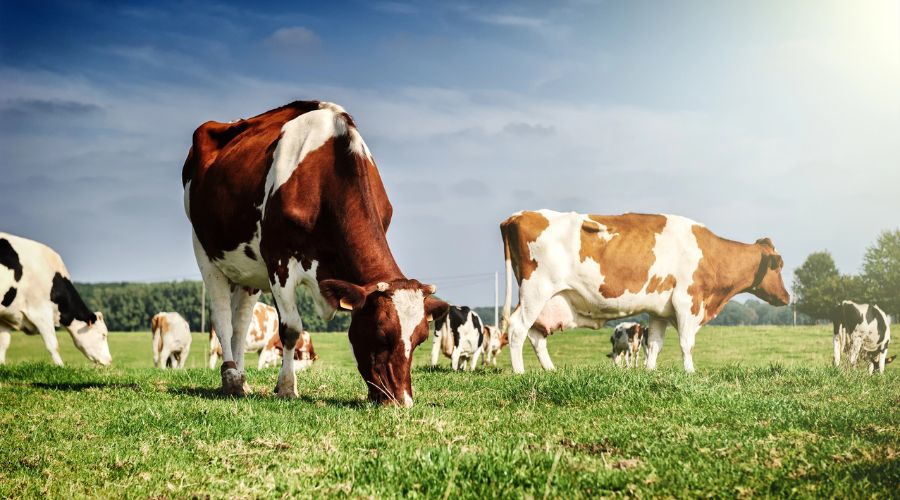Farmers urged to act on coughing cattle immediately
6th September 2024
Cases of lungworm are now being reported across the UK, prompting a warning to take action to prevent cattle deaths.

Farmers hearing any cattle, youngstock or adults, coughing should take immediate action to prevent potential livestock deaths from lungworm.
This is the advice from cattle vet Rob Howe and suitably qualified person (SQP) Mark Pass, who are both members of the Control of Worms Sustainably (COWS) group.
“Contact your vet if cattle are coughing, do not wait,” says Mr Howe. “I am an advocate of diagnostic treatments, but lungworm can be very serious and difficult to predict.
“Getting a diagnosis and ruling out possible other causes should still be a priority, but treating early if the vet has a high degree of suspicion of lungworm, can be prudent.
“Some cases may need extra help with anti-inflammatories and antibiotics which is another reason to have veterinary input.”
Mark Pass agrees, adding: “Treat cattle that are coughing as soon as possible, because if it is lungworm, it will only get worse as their airways become blocked with worms.”
He also advises contacting your vet and doing a Baermann test on faecal samples from affected animals.
This will confirm that it’s lungworm and not another respiratory disease like IBR.
A confirmed lungworm diagnosis can also help when devising a lungworm control plan before next year’s grazing season.
Cases confirmed
Cases of lungworm are now being reported across the UK.
If mildly affected, animals will cough intermittently particularly after exercise. Moderately affected animals will have frequent bouts of coughing at rest, while severely affected animals will have rapid and laboured breathing with a deep, harsh cough.
If no clean grazing is available, treating with a long-acting macrocyclic lactone is useful for preventing re-infection in beef and dairy youngstock.
White and yellow drenches should also work well but do not have persistent activity.
Speak to your vet about the best option, which may vary with the severity of the symptoms and historic treatments.
If the animals are milking cows, eprinomectin is the only product with a zero-milk withdrawal time.
“Most animals will recover,” says Mr Pass. “However, from my experience, a second treatment may be required if they are still coughing a month later.
“A change in anthelmintic class/group can also be beneficial.”
After treatment
Treated cattle should be moved to clean pasture or housed in well-ventilated buildings, although grazing patterns must allow for annual exposure to create lungworm immunity in adulthood.
For farms with a known history of lungworm, the gold standard for control is vaccination.
Mr Howe said that while this can be more expensive than wormers, vaccination alongside a robust control plan can pay back in many ways.
“Where there is no history of lungworm, regular monitoring and ensuring quarantine procedures are in place to prevent lungworm coming onto the farm, are also important,” he concluded.
COWS is keen to learn more about lungworm outbreaks and responses to treatment.
A survey is available on its website, which farmers can ask their vets to complete, which will help determine if wormers fail due to resistance or poor administration, e.g., under-dosing or inappropriate timing.
Read more livestock news.


